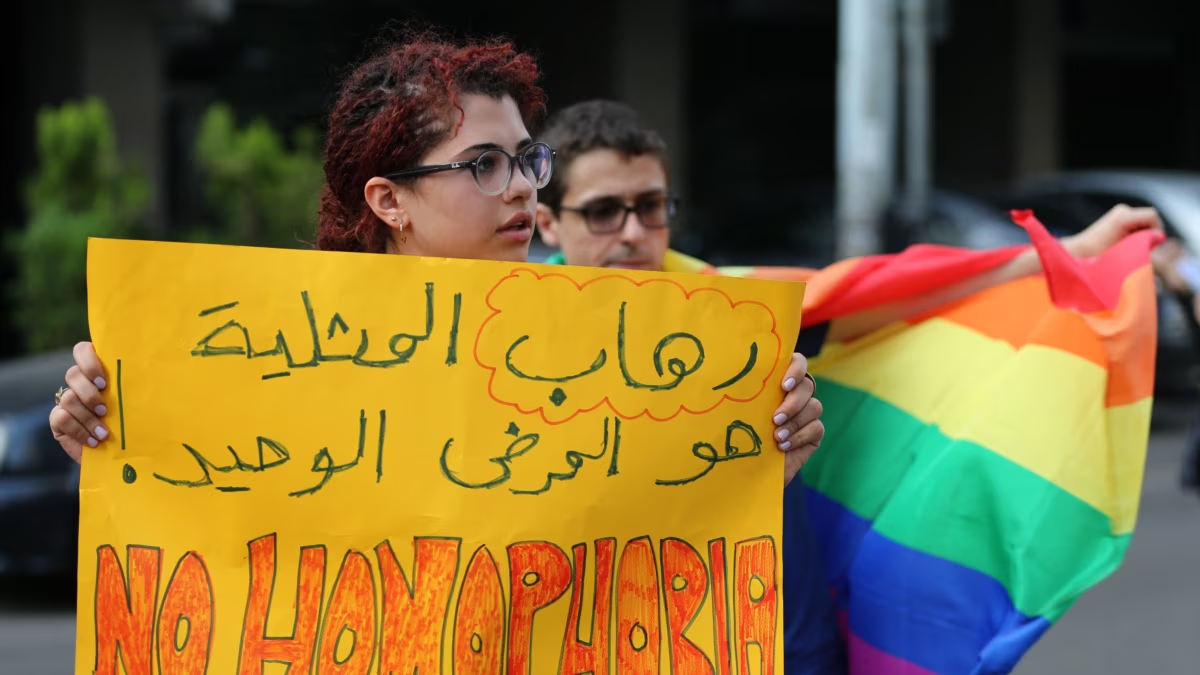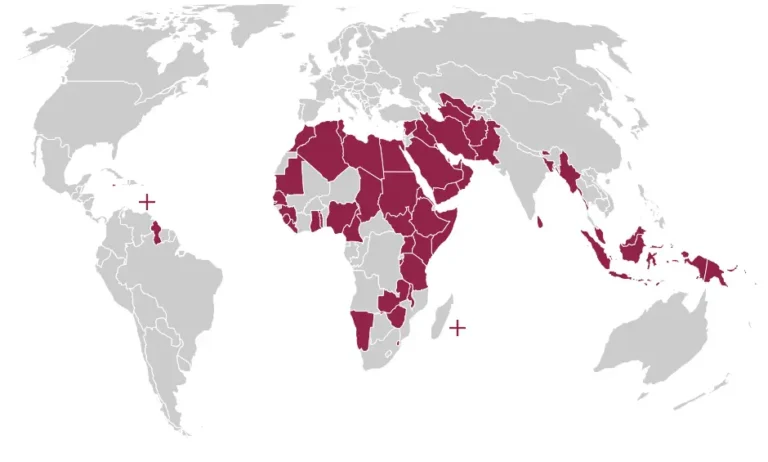Saudi Arabia, a nation steeped in tradition and governed by a strict interpretation of Islamic law (Sharia), poses a grave threat to the lives of lesbian, gay, bisexual, and transgender (LGBTQ+) individuals.
Homosexuality is not only illegal, but it carries the potential for severe punishments, including the death penalty. This article delves into the harsh realities faced by LGBTQ+ people in Saudi Arabia, exploring the legal landscape, societal attitudes, and the fight for change.
The Legal Landscape: A Web of Sharia Law
Saudi Arabia lacks a codified legal system. Instead, the justice system operates based on a conservative interpretation of Sharia law. This legal framework criminalizes all sexual activity outside of marriage, encompassing same-sex relations.
The potential punishments for such acts vary depending on the circumstances and the discretion of the judges. Here’s a breakdown of the possible consequences:
- Death Penalty: This is the most extreme punishment, reserved for married men caught in homosexual acts and for individuals engaging in interfaith sexual relations.
- Flogging: This brutal punishment involves whipping the convicted person with a lash, leaving severe physical wounds.
- Imprisonment: Individuals found guilty of same-sex relations may face lengthy prison sentences.
- Forced “Conversion Therapy”: Authorities may attempt to forcibly “cure” individuals of their homosexuality through psychological or religious means, which are widely condemned by human rights organizations.
The lack of a codified legal system creates a climate of ambiguity and fear. Judgments can be highly subjective, leaving LGBTQ+ individuals vulnerable to arbitrary punishments.
Difficulties in Gauging Enforcement
While the legal framework is undeniably harsh, the exact frequency of enforcement remains unclear. Public executions for homosexuality are not widely reported, making it difficult to assess the true scope of such punishments. Some argue that executions are rare, while others believe they are underreported. Regardless of the exact number, the potential for such a severe punishment serves as a potent deterrent, driving LGBTQ+ individuals underground and preventing them from living openly.
| Punishment | Description |
|---|---|
| Death Penalty | Execution by stoning or beheading |
| Flogging | Whipping with a lash |
| Imprisonment | Lengthy prison sentences |
| Forced “Conversion Therapy” | Psychological or religious methods to change sexual orientation |
A Society Steeped in Conservatism: The Social Cost of Being LGBTQ+
Life for LGBTQ+ individuals in Saudi Arabia extends far beyond legal repercussions. They face a deeply conservative society where homosexuality is widely taboo. Discrimination and social stigma are pervasive, leading to ostracization, violence, and even honor killings. The fear of societal repercussions forces many LGBTQ+ individuals to repress their identities, leading to isolation, depression, and mental health issues.
- Limited Support Systems: The absence of LGBTQ+ rights organizations creates a vacuum of support for individuals struggling with their identities.
- Pressure to Conform: Family and community pressure to marry and conform to traditional gender roles can be immense.
- Undercurrent of Violence: The societal disapproval of homosexuality can sometimes escalate into violence, with gay men being particularly vulnerable to physical attacks.
Bullet Points: The Social Costs of Being LGBTQ+ in Saudi Arabia
- Ostracization and social exclusion
- Difficulty forming relationships
- Limited access to mental health support
- Vulnerability to violence and honor killings
A Glimmer of Hope: The Fight for Change
Despite the bleak landscape, there are signs of a nascent movement for change.
- Social Media: The rise of social media platforms has provided a space for some LGBTQ+ individuals to connect with others anonymously, fostering a sense of community.
- International Pressure: International human rights organizations are continuously pressuring the Saudi government to reform its laws and improve its treatment of LGBTQ+ citizens.
- Shifting Social Attitudes: While change is slow, a younger generation with more exposure to the outside world may hold more progressive views on LGBTQ+ rights.
However, the path to progress is fraught with challenges. The government maintains its conservative stance, and deeply ingrained social norms are unlikely to shift rapidly.
Conclusion
The plight of LGBTQ+ individuals in Saudi Arabia demands urgent attention. The legal system must be reformed to remove discriminatory laws and ensure equal treatment for all citizens. More importantly, societal attitudes need to evolve towards greater understanding and acceptance.
International pressure and educational initiatives have a crucial role to play in fostering positive change. Ultimately, achieving true equality for LGBTQ+ individuals in Saudi Arabia will require a collective effort from the government, civil society, and the international community.


![Understanding Abortion Laws in Colorado [2024 Rule]](https://trendingwork.com/wp-content/uploads/2024/06/Understanding-Abortion-Laws-in-Colorado-2024-Rule-768x512.webp)
